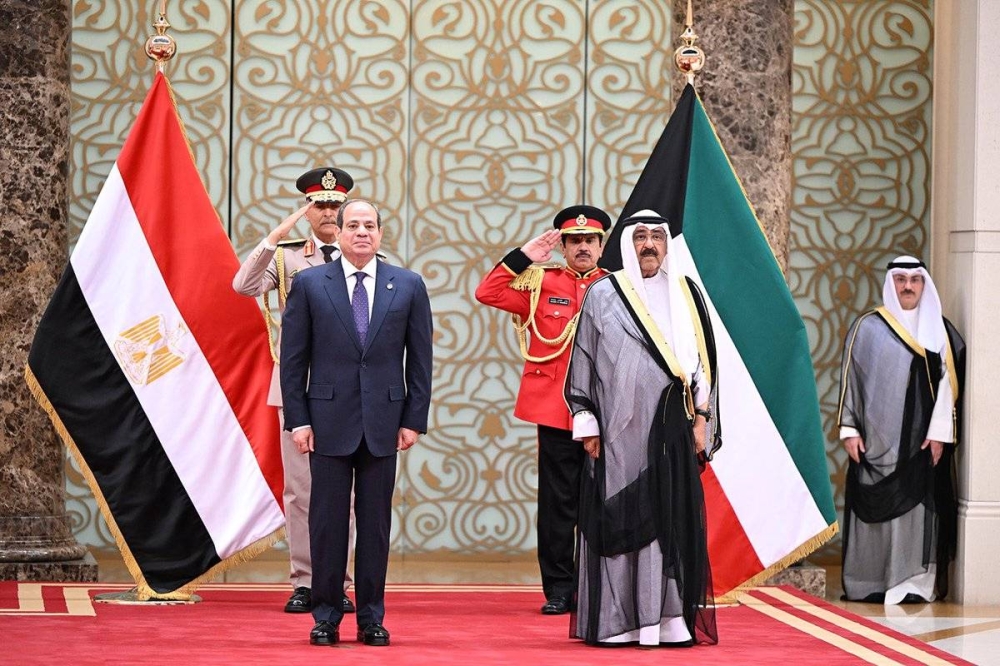Kuwait and Egypt have stressed the need to adhere to the three-phase Gaza ceasefire deal reached through joint efforts by Qatar, Egypt, and the United States of America and announced in Doha on January 19.
The two sides have expressed their condemnation and denunciation of the Israeli occupation's violation of this agreement and the resumption of hostilities in the Gaza Strip.
This came in a joint Kuwaiti-Egyptian statement at the conclusion of Egyptian President Abdel Fattah El-Sisi's visit to Kuwait, during which he held talks with HH Amir of Kuwait Sheikh Meshal Al-Ahmad Al-Jaber Al-Sabah.
The two sides have stressed the need to stop targeting civilians and facilitate safe, adequate, and sustainable access to humanitarian aid for the Palestinian people in the occupied territories, in implementation of relevant Security Council resolutions, the latest of which is Resolution 2720.
They also affirmed their rejection of the Israeli occupation's continued military operations and warned of the dire humanitarian consequences that would result from the danger of Israeli practices, which would expand the conflict and threaten the security and stability of the region and international peace and security.
Regarding bilateral relations, Kuwait and Egypt have agreed to advance economic, investment, and trade relations between the two countries. The Kuwaiti side expressed its intention to invest in the Egyptian economy in the fields of energy, agriculture, industry, information technology, real estate development, the banking sector, and the pharmaceutical industry.
The two sides praised the remarkable progress in relations between the Gulf Cooperation Council (GCC) countries and Egypt and affirmed their commitment to strengthening the political consultation mechanism between them, the last of which was held in Mecca on March 6, 2025.
They have affirmed the importance of announcing the formation of a transitional government in Syria, emphasizing the importance of fulfilling the aspirations and hopes of the Syrian people for a secure life.
The two sides have welcomed the end of the presidential vacancy crisis in Lebanon, which represented a pivotal step toward completing the country's remaining political deadlines. They also emphasized the need to support the Sudan's national institutions and reject any unilateral measures that could threaten its unity, sovereignty, and territorial integrity.

